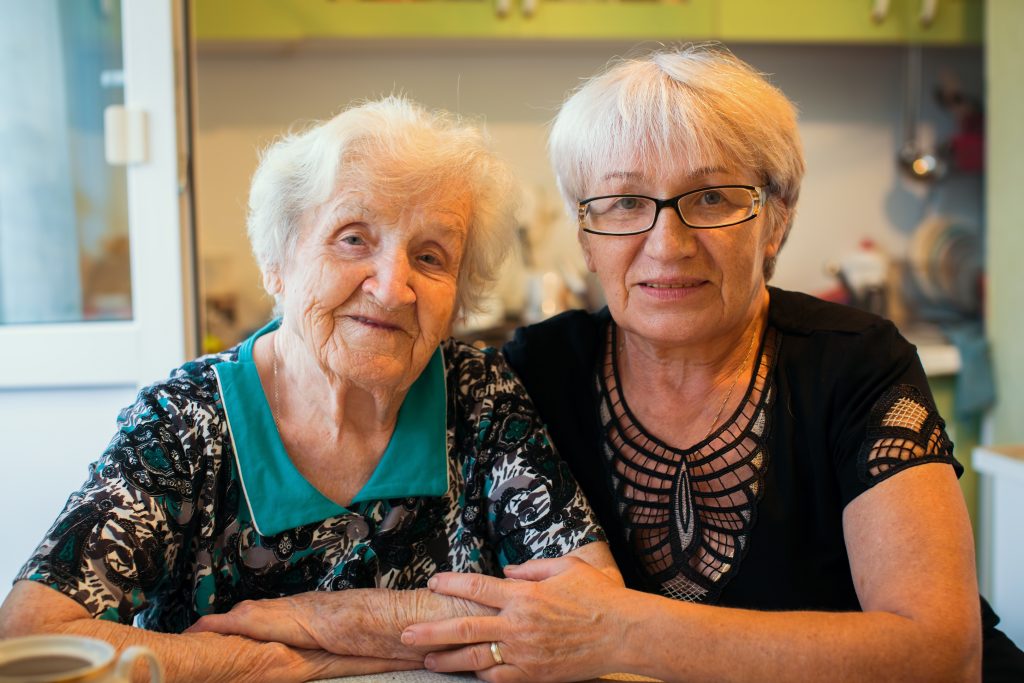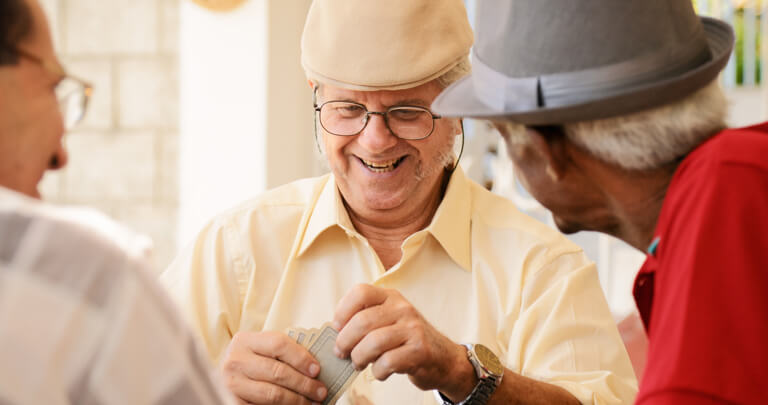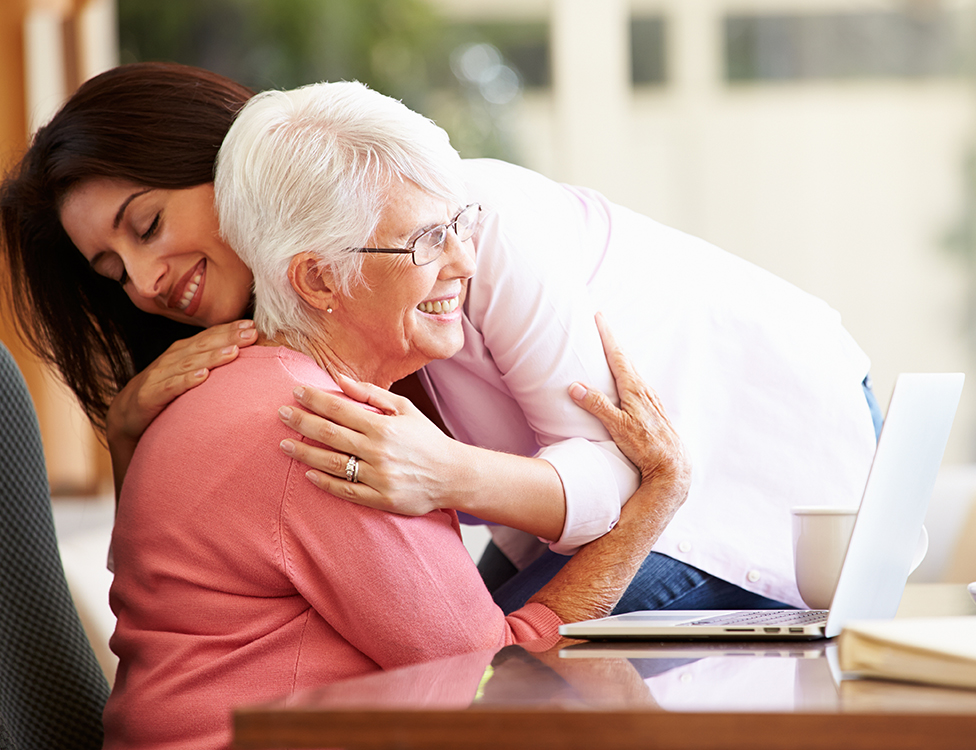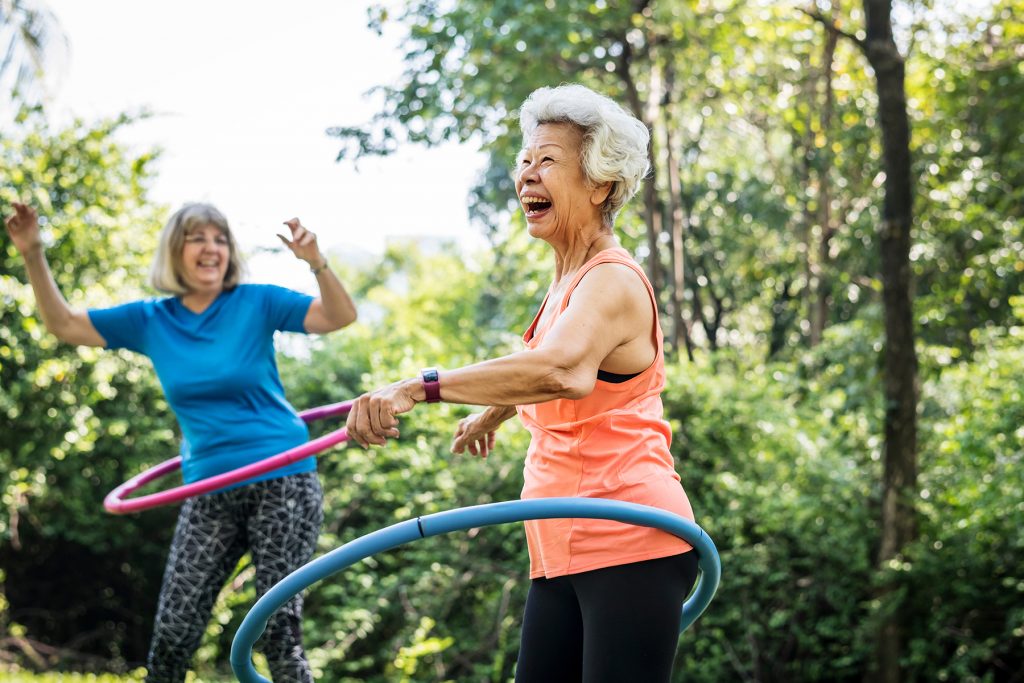 Our Decision Guide is designed to help you make good decisions for your future or that of a loved one. There are many factors to consider — financial security, ongoing healthcare, and overall safety and well-being. Our guide offers many answers, however as you go through this process please feel free to contact us anytime should you require more information.
Our Decision Guide is designed to help you make good decisions for your future or that of a loved one. There are many factors to consider — financial security, ongoing healthcare, and overall safety and well-being. Our guide offers many answers, however as you go through this process please feel free to contact us anytime should you require more information.
Assisted Living Concerns
Often adult children are suddenly required to make living arrangements for their parents that include moving to safer surroundings. Helping loved ones make good decisions about their future can often be stressful and at times even overwhelming. We understand and have gathered the following information to help you make the best decision and assist you through the process. We offer information and answer several key questions that are often asked, and hope this will help you create a plan that makes sense for you and your loved one.
What is Assisted Living?
Our assisted living apartments combine easy to maintain housing and personal care in a beautiful residential setting. Trained staff is available 24 hours a day to provide support for those who need assistance with daily activities such as bathing, dressing and medications, but do not yet require complex medical services. Residents enjoy delicious, freshly-prepared noon and evening meals each day and a variety of snacks. The private assisted living apartments feature a living room, bedroom, a private bathroom with walk-in shower, and a kitchenette with an apartment-size refrigerator and microwave for quick and easy preparation of meals and snacks. Assisted living apartments share spacious common areas that include a living room, dining room and activity spaces. Assisted Living residents also enjoy the many on-campus amenities that are available.
How do I know when it’s time for Assisted Living?
Safety first! If the home or current living situation is cause for concern, it’s time to consider a change and assisted living may be the answer. Signs you should watch for that indicate a change is needed are: personal hygiene changes, clothes worn repeatedly or not laundered, confusion with medications, poor nutrition, reoccurring falls, isolation and/or forgetfulness. If you have noticed any of these symptoms consider moving your loved one to a community where they can receive the services and benefits of specialized care and you have peace of mind. Before moving to assisted living, residents are given a full comprehensive nursing assessment to determine the level of care needed, this will also provide pertinent information to help guide needed decisions.
Continuing Care Retirement Community
As a CCRC, we feature several levels of care and living services. Residents in our rehabilitation area have the convenience of moving from their rehab stay directly to our assisted living, should they require that level of care. The transition is quick, easy and relaxed because residents and family are in familiar surroundings and much of the paperwork is already in place.
What about Memory Care?
For seniors with memory concerns, we memory care. This area of the community serves those with Alzheimer’s or other cognitive impairments. They have private apartments with their own private bathroom.
How do I approach my loved one about moving to Assisted Living?
Often when adult children contact us, it’s after or during a healthcare crisis, hospital stay, during a rehab stay or a drastic health decline. In this situation you can rely on healthcare professionals to recommend the best setting for your family member. They have the ability to properly assess and help determine what the needs really are. The decision for the health and safety of your loved one should, of course, take precedence over the desire to return to the home of 50 years with all the memories and the multiple, unused, china sets. The recommendation and the expression of your own concern for their safety and well-being will set your family on the right course. After a decision is made family members find a sense of relief and can return to being the son or the daughter, rather than being the caretaker who is overwhelmed. Assisted Living offers residents opportunity to remain as independent as possible while enjoying the security of 24-hour assistance if needed.
Avoiding a Crisis – It’s important to know you don’t need to wait for a crisis or accident to consider a move to Assisted Living. Many residents and families tour our community and learn about the program and see apartments long before any kind of health issue arises. Once they see our assisted living wing and meet the happy residents their concerns are put aside and they welcome the change. Making the transition under these conditions is more desirable and less stressful than having to react to an emergency situation.
I want peace of mind knowing my loved one is safe and secure.
We provide around-the-clock services and observation. This means you can be assured our staff is there to support your loved one and keep you informed. For each new resident we create an individualized care plan that monitors their well-being, and if changes do occur we are able to adapt and make certain they are attended to immediately and appropriately.
Personal care in assisted living typically includes:
- Staff available to respond to both scheduled and unscheduled needs
- Assistance with eating, bathing, dressing, toileting, and walking
- Access to health and medical services, such as physical therapy and hospice
- Emergency call systems for each resident’s apartment plus a personal pendant
- Medication management
- Care for residents with cognitive impairment
- Social services and Pastoral care
The majority of senior communities charge month-to-month rates. Several of the primary factors that determine rates are apartment size and level of care or service needed by the resident. When looking at options it’s important to know what you are getting for your dollar.
Assisted living provides the opportunity for continued socialization and activities, balanced nutrition, and the peace of mind that assistance is always nearby. The basic monthly assisted living rate includes a majority of personal services and meals. Learn more about payment options by visiting our Financial Information page.

 Our Decision Guide is designed to help you make good decisions for your future or that of a loved one. There are many factors to consider — financial security, ongoing healthcare, and overall safety and well-being. Our guide offers many answers, however as you go through this process please feel free to contact us anytime should you require more information.
Our Decision Guide is designed to help you make good decisions for your future or that of a loved one. There are many factors to consider — financial security, ongoing healthcare, and overall safety and well-being. Our guide offers many answers, however as you go through this process please feel free to contact us anytime should you require more information.


